Workers 18 and over have a right to a minute break where the working day is longer than six hours, also, a rest period of 11 consecutive hours between each working day, (unless working on a shift pattern) and a 24 hour rest period in each seven days For nightworkers, the average daily hours of work are 8, averaged over a 17week periodAnswered by a verified Employment Lawyer We use cookies to give you the best possible experience on our websiteAn employer who made you work until noon one day, for example, and then report back at noon the next day, could not call that 24 hours off a day of rest The law presumes that Sunday will be the one rest day in seven Employees who must work Sundays must be told that ahead of time and told what their rest day during the week will be

Google Sheets Shorts Change The Column And Row Size 0 Yagisanatode
Is working 13 days in a row illegal
Is working 13 days in a row illegal- · 1 ANSWER An employer can required its employees to work 7 days a week all of the time or for a short period of time when necessary However, after 40 hours in a single week, the employer must pay overtime (time and a half) to nonexempt employees (usually hourly employees)Therefore, it includes seven consecutive 24hour periods




Google Sheets Shorts Change The Column And Row Size 0 Yagisanatode
· This section of the code clarifies that employees must not necessarily take a day off in a seven day period, as long as the rest days are provided for during the same calendar month For example, if an employer "reasonably requires" the employee to work for 21 consecutive days in a row, this is permissible as long as the employer subsequently provides for the three missed days · If you are working on the seventh day out of seven days, you must be paid overtime for that seventh day An exception to this is if you do not work more than 30 hours in a week or six hours in any one day during the week Moreover, if you work seven consecutive workdays (meaning seven days in a row) in a workweek, your employer must pay you time and onehalf the regular rate of pay for the first eight hours you work7 Days in a Row Your Right to Time and a Half for the Seventh Day of Work in a Workweek It is important to note that a workweek begins on the same day each week;
An employee must have at least 32 hours in a row free from work each week If an employee works during this period (eg because of an emergency), they must be paid extra pay An employee must also have at least eight hours off between shifts If an employee works during this period, the hours are added to other hours worked in the day · Certain jobs in the oil and gas industry require that persons work in rotational shifts of 28 days That means being on site for 28 days and taking a break for the next 28 days Offshore drilling jobs are a classic example This type of work routine has its advantages but also several drawbacks We · Further, an employer in New York must allow two days of rest in each calendar month to signalmen, towermen or gatemen who work eight hours or more per day, unless such signalmen, towermen or gatemen are engaged in interstate commerce NY Labor Law § 166(4), 166(5)
As a result of the ECJ's decision, an employer in the UK could, technically, require an employee to work for 24 consecutive days, provided the other entitlements set out in the WTD are satisfied The case, was, however, concerned with the WTD, not the WTR, and any requirement to work 24 consecutive days could be open to challengeSo, if you work for 15 days in a row, you have to get two days off in that calendar month in addition to not being required to work consecutively for more than 6 days If you are working on the seventh day out of seven days, you must be paid overtime for that seventh day An exception to this is if you do not work more than 30 hours in a week · Is it legal to force an hourly employee to work 13 days in a row without a day off?




Can My Employer Schedule Me To Work Every Day Of The Week Illinois Legal Aid Online




Internal Temperature Of The Refrigerator In 4 Days In Row Download Scientific Diagram
· The way the work week works at my job is Sunday to Saturday, probably the same for most retail jobs anyways, but yeah this is probably me moaning over something that happens all the time, although I don't personally know anybody that has done it yet, but I have just found out I will be working 7 days in a row starting from Thursday, like most jobs I get 2 days off per week, so I · Many WA awards require penalty rates to be paid for specified working days or times Penalty rates are higher rates of pay that apply when an employee works hours that are inside the span of hours set by the relevant WA award but have a penalty rate applied to them, such as on Sundays or public holidays For example, the Shop and Warehouse (Wholesale andJust wondering if there are some rules out there as to how many days you can actually work For eg is it legal to have employees work 12 days in a row Say you do your normal week (Monday to Friday) then the company want you to work the weekend and want you straight back to work on the Monday?




What Are The Most Days You Ve Worked In A Row Before You Got A Day Off And Why Is That Quora




India Registers Less Than 400 Daily Covid 19 Deaths For 12 Days In A Row
· Often, I will work double shifts or just 8 hour 3rd shift for overtime I may end up working 812 days in a row or more if I am mandated to work more 0 Likes ED Nurse, RN Specializes in Emergency Medicine Has 9 years experience Jan 30, 16 You'd only beWork the same way, every day It's THAT easy Seadogg #2 Posted Tuesday, January 12, 16 PM(UTC) Rank Senior Member Groups Registered Joined 10/31/13(UTC) Posts 1,954 Thanks 39So if you do 9530 MF ordinarily that's a 375 hour week, and over a four month period adding in the eight additional days for the weekends, then you have a total amount of time worked of 375*13 and 525 * 4 which totals up to = 6975 hours which averages out over that time as an average of 4102 hours so well below the 48




Counting Days In A Row In A Table Based On Thresho Qlik Community
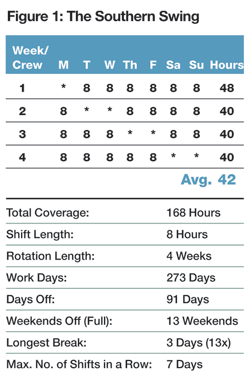



The Death Of The 8 Hour Shift Industryweek
· Rather, they are entitled to one day off for every six days they work in the same calendar month To be sure, if an employer "reasonably requires" someone to work for 21 days in a row, he or she is allowed to do so as long as he or she gives the employee three days off at some time throughout the month Exceptions to the RuleMinimum Number of Hours of Work/Day Most areas of employment – 3 hours/day worked School bus drivers – 2 hours/day worked Workers aged 12, 13 or 14 – 2 hours/day worked on school days Parttime employees in certain notforprofit recreation or athletic programs – 2 hours/day worked · Try working 90 days straight with 12 hour days There are few valid or enforceable rules these days as to how many days or hours you can work most of it comes under todays duty of care laws, if you dont think you can work the long hours or days demanded just tel your boss under duty of care that you need a day or 2 off, that'll go down well




Playing 0 Days In A Row Youtube




Split A Row That Has Data Across Several Days By Individual Date Bigquery Stack Overflow
· What I learned from exercising 100 days in a row It actually takes less discipline As I write this, I'm on about day number 125 What is so interesting to me is that when I tried to commit to exercising 45 days a week, It was much harder on any given day to make myself exercise · I've been working out 4 days in a row and taking 3 days off I alternate between deep and shallow water aerobics The first day, I felt pretty good The second day, I felt a nice burn but still pretty good The third day, my arms started feeling like spaghetti noodles and I could barely submerge the weightsIt's 5 am to 630pm, 3 days in a row, with 4 days off On one hand, that would give me a bunch of time to enjoy hobbies, family, traveling, etc However, 135 hours is




Statutory Sick Pay Ssp How Much Is Sick Pay In 21




Positive Opk S 12 Days In A Row Trying For A Baby Babycenter Canada
Music video by Anouk performing Three Days In A Row (P) 09 The copyright in this sound recording is owned by Dino Music a division of EMI Netherlands BV · But that does not mean that an employee cannot be required to work any more than six days in a row Rather, suppose in week one an employee was off Sunday and worked Monday, Tuesday, Wednesday, Thursday, Friday and Saturday In week two, the employee worked Sunday, Monday, Tuesday, Wednesday, Thursday and Friday · A In Connecticut, 12—not 13—days is the maximum permissible continuous mandatory period of work, but you're not necessarily breaking the law if you allow an employee to work more than 12 days in a row It's only illegal to compel or require someone to work that long over their objection, and/or to discipline an employee who refuses




Illinois Loosens More Covid 19 Mitigation Restrictions




Wader World After Working 14hr Days 13 Days In A Row Then 2 Days Off And Working Straight Through Again The Missus Made Me Get Out For A Walk Locally With
· So will only be working days in a row I have no problem working the days, just generally interested in it and also see if I could use it to get a manager in trouble P I work on average three 78 shifts a week the rest are 4 hour shiftsYou can't work more than 48 hours a week on average normally averaged over 17 weeks This law is sometimes called the 'working time directive' or 'working time regulations' You can choose to work more by opting out of the 48hour week If you're under 18, you can't work more than 8 hours a day or 40 hours a week · yup try working 13 days in a row, like i had to last summer its not how many days you work, its how many hours you work in a week usually this is capped at 40, but most employment contracts have an optional thing you can sign if you're willing to occasionally work more than that (though who defines occasionally is anyones guess)




How To Find The Next Business Day And Add Or Subtract N Working Days With Sql Oracle All Things Sql Blog




Joe Devon Closed My Circles 13 Days In A Row
There are no laws in New York that would prevent you from working 13 days in a row if you so choose If you would rather not work 13 days in a row, NY State labor laws require that you be given 24 continuous hours off within every 7 days of work if you are not a white collar workerThe Fair Work Ombudsman is committed to providing advice that you can rely on The information contained on this website is general in nature If you are unsure about how it applies to your situation you can call our Infoline on 13 13 94 or speak with a union, industry association or workplace relations professional · My wife works at a college in the kitchen She does shift work, 42 hours per week usually Monday to Saturday She has been given a summer rota and for the first time ever has to work Sundays for three weeks This is usually her day off At the moment she is working ten days running without a day off




Amazon Com Life Behind A Steering Wheel Ebook Kalra Raghav Kindle Store




2 Days In A Row No Mike Thomas Misses Practice Again Click Here For Saints Injury Report Wgno
· Looking for written proof that a CCA cannot work more than 13 days in a row;28 May 13 at 1129AM edited 30 November 1 at 100AM in Employment, Jobseeking & Training 13 replies 16K views · The "workweek" is a 168 consecutivehour period and it must be defined by the employer However, as already stated, twice, the entitlement of "one day rest in seven" is not specific to the workweek AND it does not prohibit 8 days in a row, or even 16 days in a row, as long as you get the equivalent of one day's rest in seven over the calendar month




What Are The Odds Man Hits A Hole In One 2 Days In A Row On The Same Hole In Surprise




Apple Three Days In A Row Philip Elmer Dewitt
· Working long hours, even at a desk, can have serious repercussions for your physical and mental health and may even end up hurting productivity in the long run It's making you fatter13 days was my max Was scheduled to work FriMon two weeks in a row, but I was also scheduled for a training one those off days I got told that the training was vital that I receive (It wasn't, literally haven't touched the subject of the training since)In some industries and occupations, an employee must receive 24 hours (consecutive hours can span 2 different days) of rest in each calendar week, for example, work in a factory, mercantile establishment, hotel, and restaurant (except resort/seasonal hotels and small, rural restaurants), as well as elevator operator, watchman, janitor or superintendent




Solved Adding Days Alteryx Community




Us Executes Second Death Row Inmate In Two Days The Independent
· Said differently, the law provides that you, as an employee, are entitled to a day of rest during the designated 7day workweek established by your employer, otherwise, your employer would be in violation of Labor Code section 552 and subject to penalties "No employer of labor shall cause his employees to work more than six days in seven" · Rights to Time off Working 14 days in a row?Your average working hours are calculated over a 17week period You can work more than 48 hours in one week as long as the average is less than 48 There are special rules for some workers, like young workers and mobile workers in the transport industry Days off from work and rest breaks All adult workers are entitled to one day off a week




Legal Working Age Wikipedia




Tattoo Mitta Full Backpiece 2 Days In A Row Total 13 Facebook
· Providing that your company does not treat bank holidays and weekend as normal work days, you will get 18 days off in a row for just nine annual leave days Get ahead of the game (Image Jack Taylor/Getty Images) This is because Friday, April 19, Monday, April 22 and Monday, May 6 are all bank holidays · There is unfortunately no state or federal law that limits the number of days in a row an employee can be required to work, as long as they are paid overtime for hours worked beyond 40 in a given week (or are exempt) An employer is allowed to spread that 40 hours over 7 days · The employer may designate a different seven day period If you work six days in one workweek and seven in the next to constitute the 13 days you asked about, you only get overtime after you have worked more than 40 hours in the workweek in which the days fall Everything starts over at zero when one workweek ends and the other begins
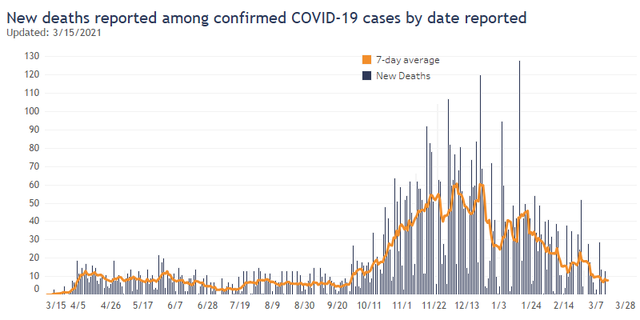



Daily Wisconsin Covid 19 Update Two Days In A Row Without Deaths Shepherd Express




March 13 21 Trinalin Thinks Things Through
Re Working 13 days in a row Yes She could be asked to work 365 days a year with no additional compensation Obviously, at some point she might want to find another job, but many lawyers, IT personnel, accountants and other professionals work 30, 40 or 50 days in a row at a time It's certainly not unusual to work every day for a few weeks




No New Covid 19 Cases For 13 Days In A Row 7 More Recovered In The Kingdom Khmer Post Asia




No Deaths From Covid 19 In D C For Four Days In A Row Washington Times




Short Story 12 Days In A Row 1 Of 2 Letterpile




Non Working Days
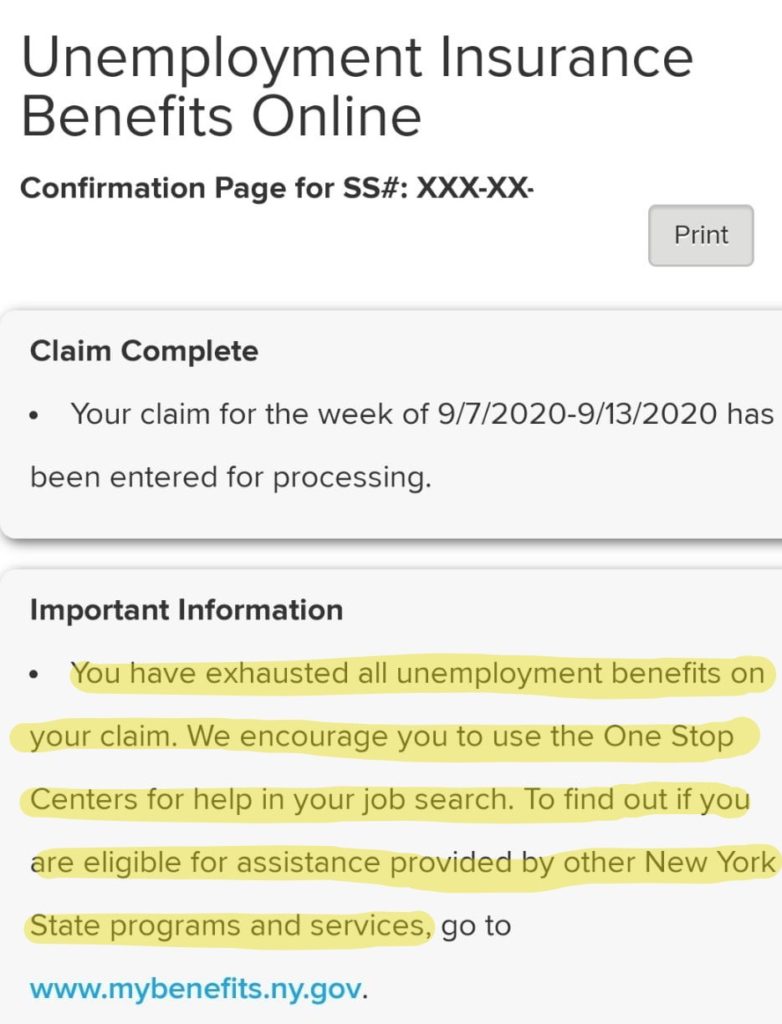



Effective Days Down To Zero Benefit Year Ending Homeunemployed Com




I Worked Out For 30 Days In A Row And This Happened Emily Parsons
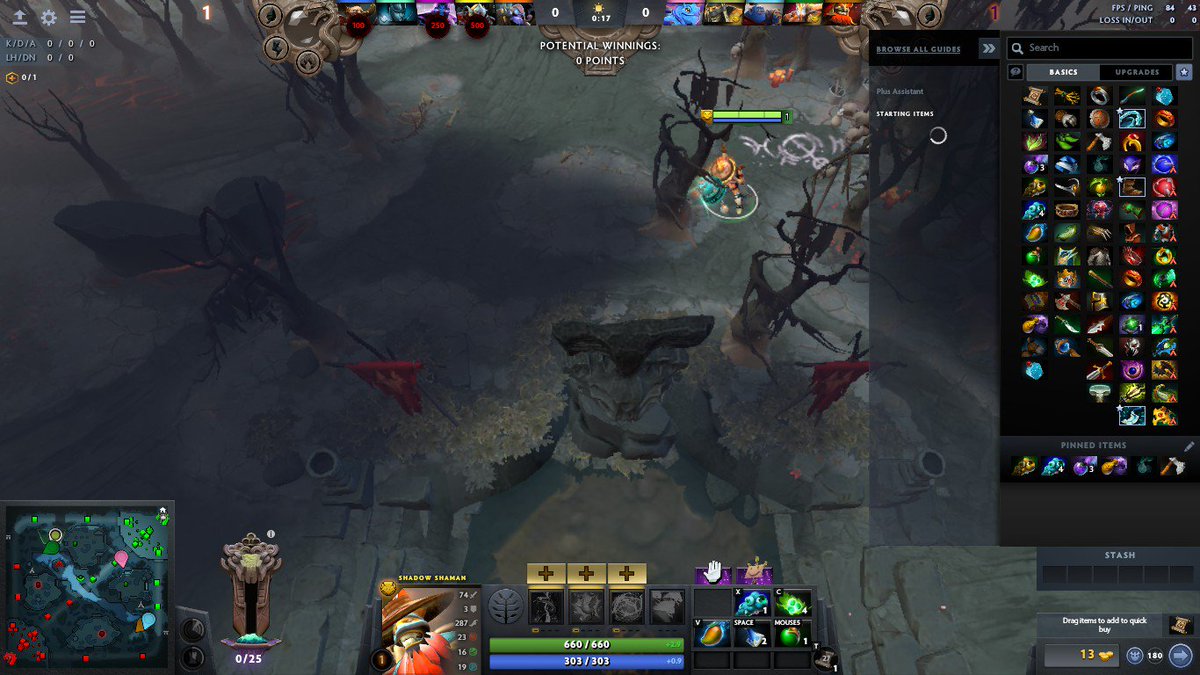



Reddit Dota 2 Summer Scrub Dota2 Plus Not Working 4 Days In A Row Mind You We Pay For This Shit And You Not Even Abl T Co Jcybkdhpku Dota2 T Co Vofqrntrqe




Indonesian Girl Sleeping For 13 Days In A Row




Liz Callaway You There In The Back Row 13 Days To Broadway Listen With Lyrics Deezer




Google Sheets Shorts Change The Column And Row Size 0 Yagisanatode




Weather Blog This Is One Of The Longest Cold Spells Under In Kc History




Veronica Working 13 Days In A Row




Why You Should Work Multiple Jobs Money Under 30




Colombians Keep Protesting For 13 Days In A Row News Telesur English




75 Days In A Row Youtube




How Many Days In A Row Could You Eat Barbecue




Can My Employer Require Me To Work 13 Days In A Row Legal Answers Avvo




Safemoonarmy S Tweet Number Two After 13 Days In A Row On Top We Are Family We Are Safemoon Safemoon Coinmarketcap Safemoonarmy Trendsmap




June 1 Pandemic Report No New Fayette Cases 3 Days In A Row The Citizen




Excel Pivot Table Question How To Get Subtotals For A Row Area Field Stack Overflow




13 Comics That Get You If You Re Just Having A Rough Time Work Quotes Funny Work Humor Working From Home Meme




13 Days Of Sov Camera Viscera




Working 9 Days In A Row Wish Me Luck Starbucksbaristas




Denver Saw 6 Days In A Row Of Snow But It Wasn T A Record 9news Com
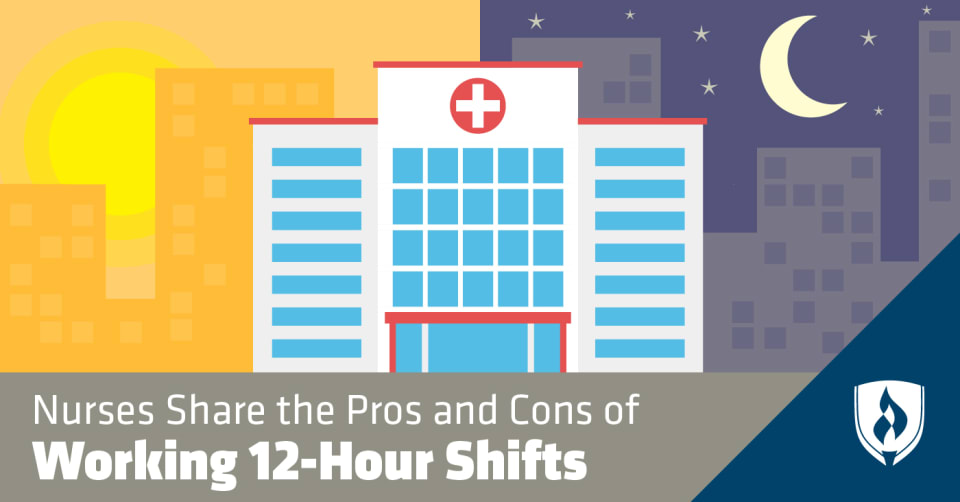



Nurses Share The Pros And Cons Of Working 12 Hour Shifts Rasmussen University




Is It Legal To Be Required To Work 13 Days In A Row Without A Day Off Legal Answers Avvo




It S Been 13 Days Since Christmas I M Sure It S Just A Coincidence Album On Imgur




Lipton Tea Now Made By Ufcw Members The United Food Commercial Workers International Union The United Food Commercial Workers International Union



Nbn Schedules Up To An 8 Hour Outage 3 Days In A Row During The Day I Guess Working From Home Wont Be An Option Next Week Nbn




Abolish The 24 Hour Workday Legislation Press Conference National Mobilization Against Sweatshops
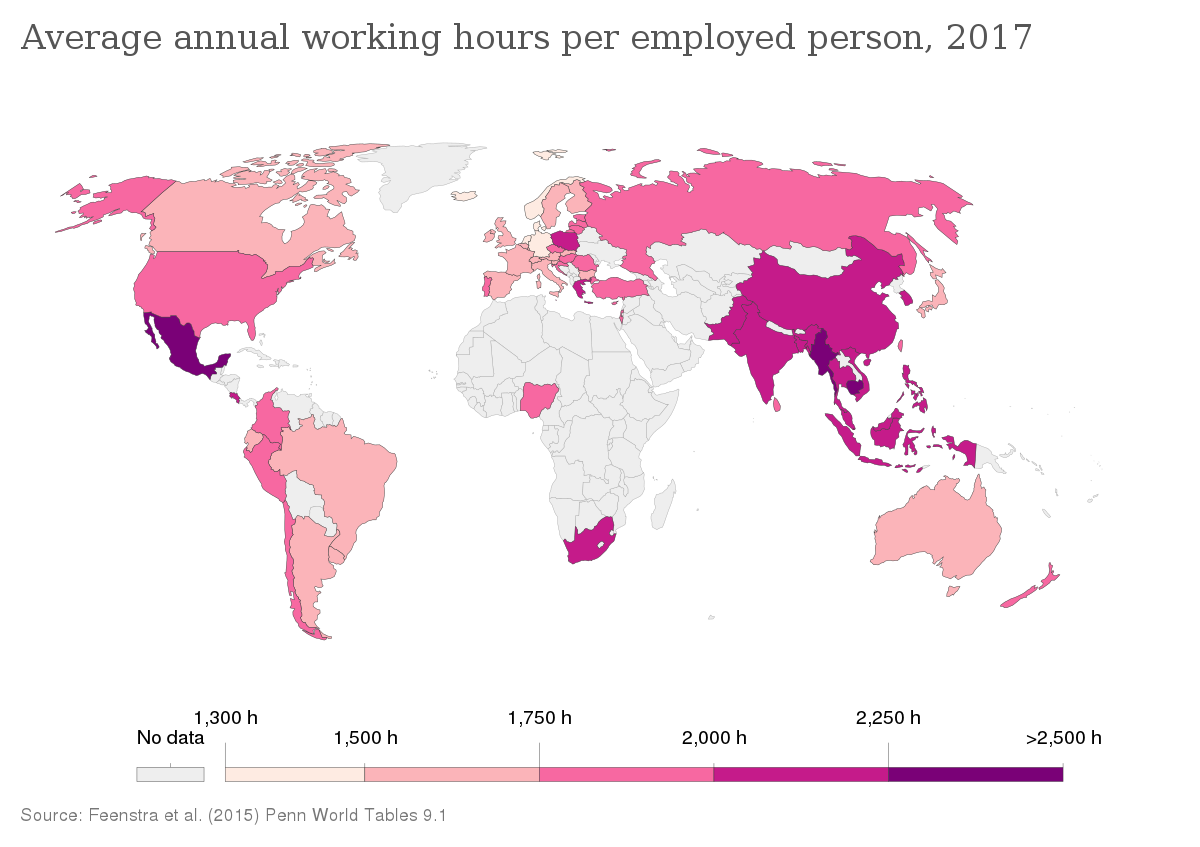



Working Time Wikipedia
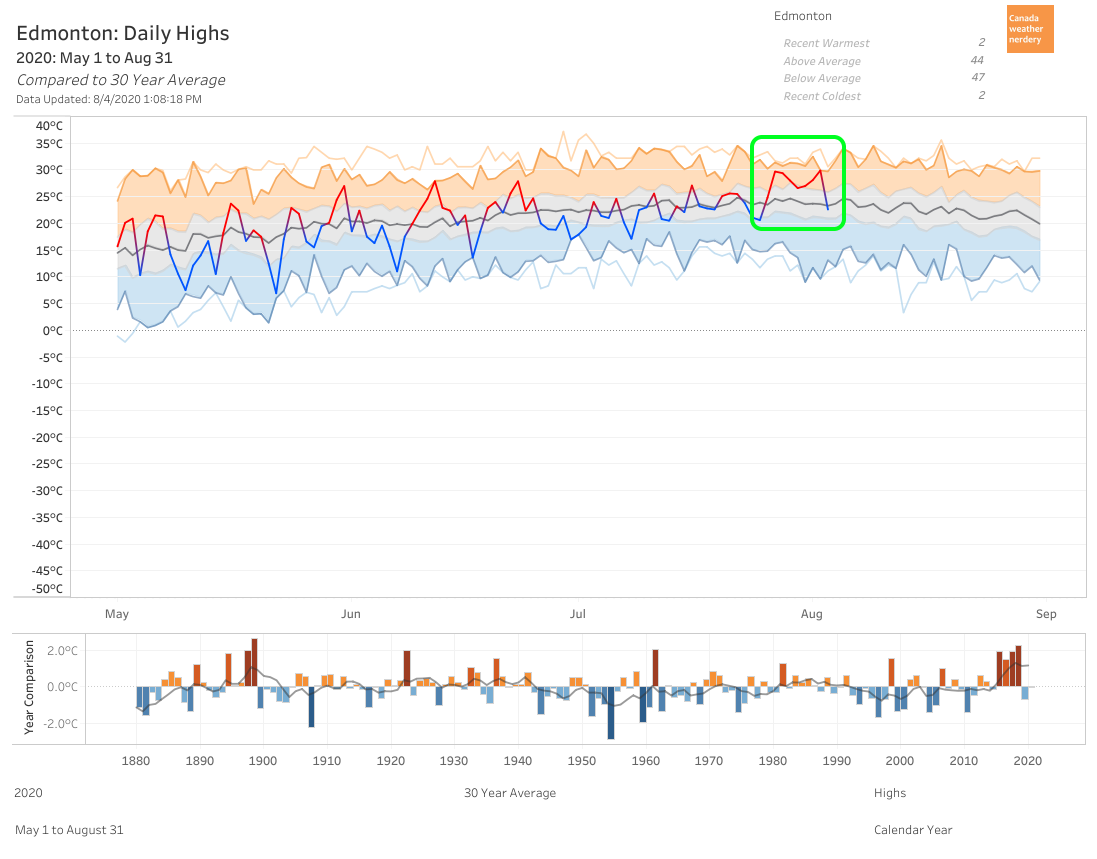



A Thread From Yegwxnerdery Yesterday Was The End Of Our Streak Of 25 C Days In A Row 1 Yegwx
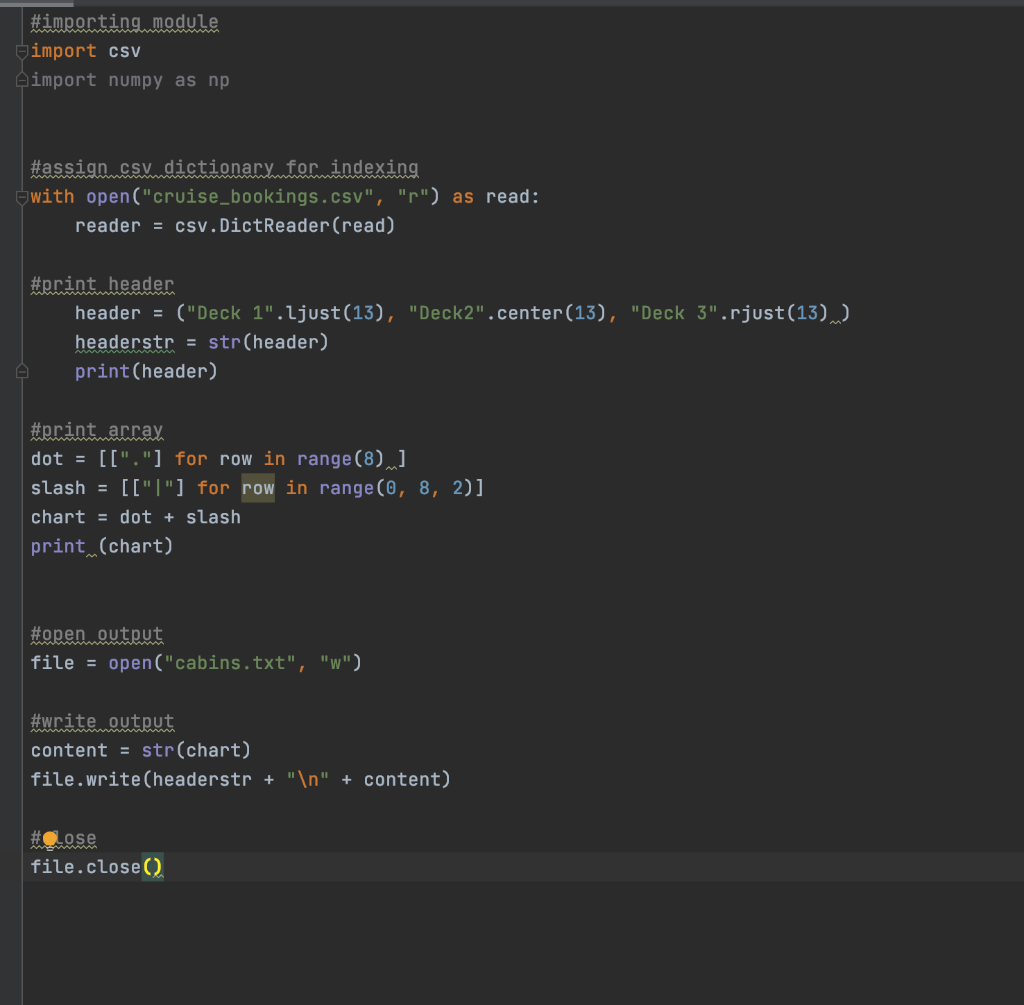



Solved Python I Have Been Working On This For Days And Chegg Com



Dow 9 Up Days In A Row



8 Games In 13 Days Four Waves In A Row Shougang S Winning Percentage Has Improved Significantly Yqqlm




Guide Claim A Row House With Your Free Lot Deed From Completing Outskirts Quests Shroud Of The Avatar Forum




Coronavirus Update Victoria Reaches 13 Days In A Row With No Cases Deaths The Ararat Advertiser Ararat Vic
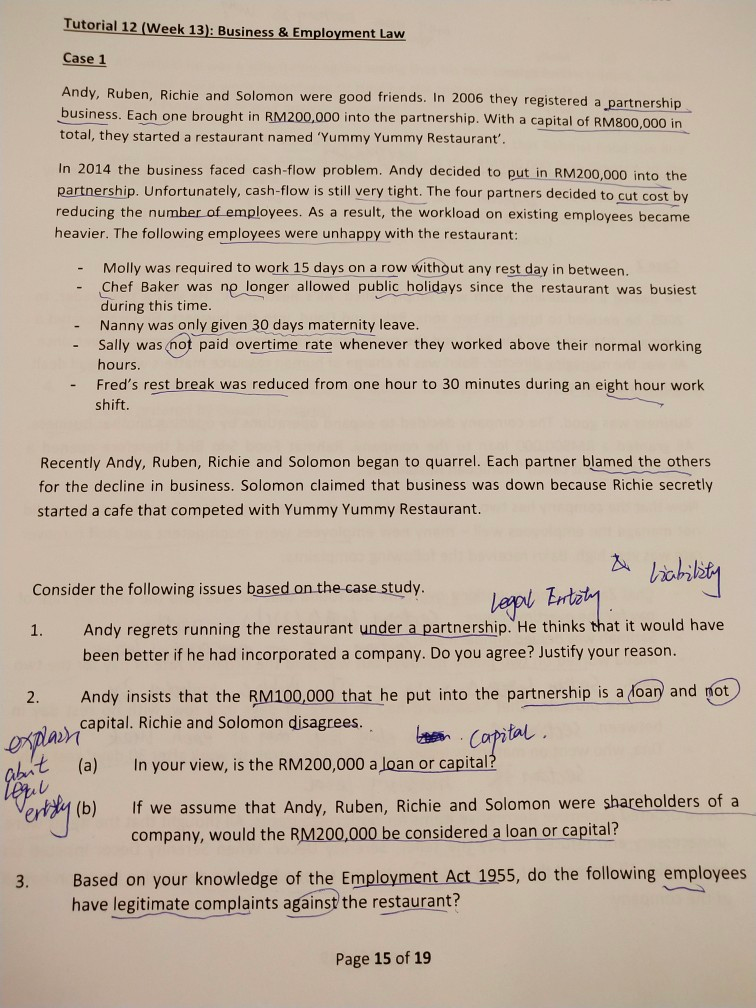



Solved Tutorial 12 Week 13 Business Employment Law C Chegg Com




Excel Formula To Calculate The Max Consecutive Days Leading A Rank Super User




13 Years Of Perfect Attendance Student Nears 2 000 Days In A Row




Owl Drops Down Couple S Chimney Two Days In A Row Newschain




Sleeping Beauty From Indonesia Can Sleep For 13 Days In A Row




Hours Of Work Ontario Laws Dutton Employment Law
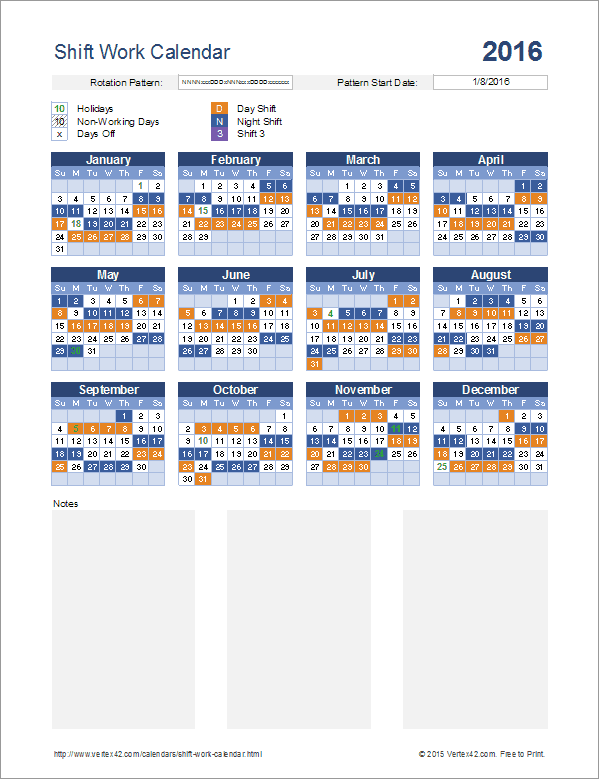



Shift Work Calendar For Excel
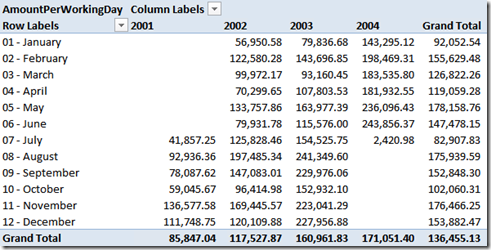



Working Days Computation In Powerpivot Sqlbi




13 Days In Hell Day 13 Youtube




5rozzwvrwpgj7m




Binghamton Is In The Midst Of Its Longest Period Without Precipitation In Years
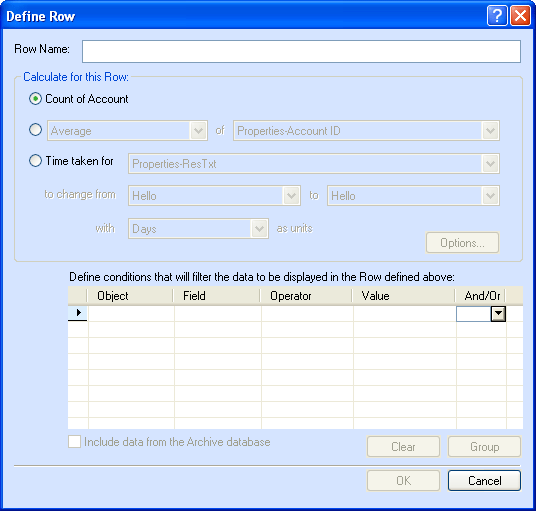



Customizing Rows In A Cross Tab Report




Function To Calculate The Number Of Working Days Between Two Dates Experian Data Quality Community




Why Is My Ovulation Test Positive For 2 Days In A Row Babyhopes




Covid 19 Could Cause Permanent Shift Towards Home Working Technology The Guardian



History Comic Strip Storyboard Par Mathesonverzin




Sky Blanket The First Row Is Joined Sky Blanket Yo Yos Crochet




Wader World After Working 14hr Days 13 Days In A Row Then 2 Days Off And Working Straight Through Again The Missus Made Me Get Out For A Walk Locally With




Hours Minors Are Legally Allowed To Work




Paralympian Angela Madsen 13 Days Into Row To Hawaii People Gazettes Com




Solved Ion 9 2 Due In 6 Hours 13 Minutes Due Sat 11 23 Chegg Com




It Is Supposed To Be Five Days Off In A Row At Easter 19




Amazon Com Mhp Electric Punching Machine Mould Punching Machine Mould Copper Row Punching Machine Mould Round Mold Oval Mold Home Improvement




Brazil Sees Record High Covid 19 Deaths Two Days In A Row The Statesman




You Never Feel Rested When You Re Off Two Random Days Working Washington




Cloudy And Mild January Continues




What Happens When Spx Goes Up 1 For Four Days In A Row Pivot Analytics




Two 5 Check Mark Days In A Row Speak Easy




This Same Notice Appeared Three Days In A Row Aug 13 15 Newspapers Com




Bitmart Lists Band Protocol Band 80 Off Trading Fees 7 Days In A Row Bitmart



Shitty Scheduling 9 Days In A Row And Hours Like This Walmart
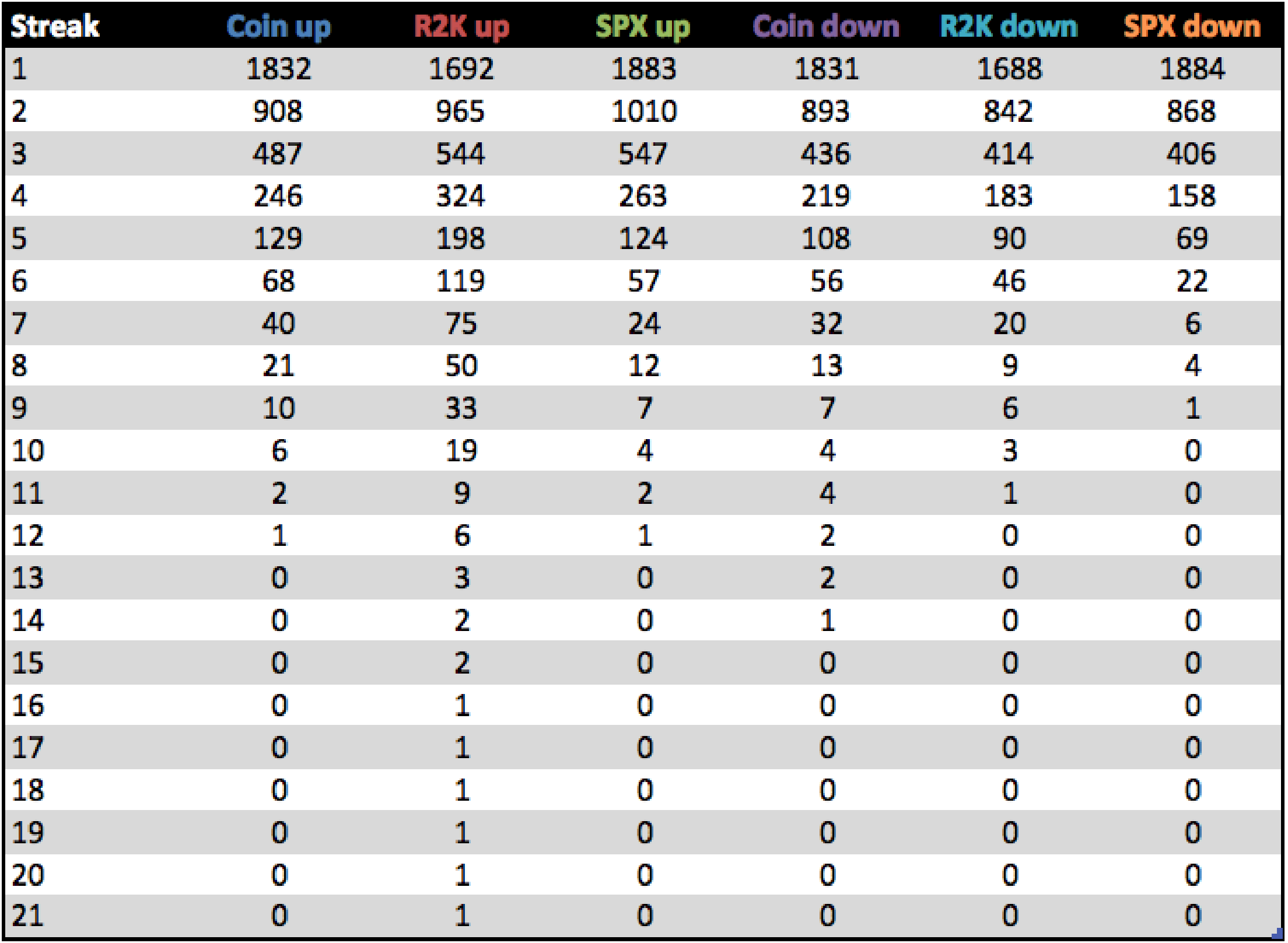



The Russell 00 Is Up Nine Days In A Row A Coin Flip Can Do That




Vaccines An Interview With Dr Sean Elias The Oxford Scientist




Public Sector Bank Closed For 4 Days In Row Due To Strike Flow Capital Press




Amazon Com Enhanced Productivity Calendar Time Management For Better Work Exercise Life Balance For Better Intellectual And Physical Health And For Much Better Quality Of Life Appstore For Android




What Working 52 Days In A Row Will Do To A Person By Brian Kurian Publishous Medium
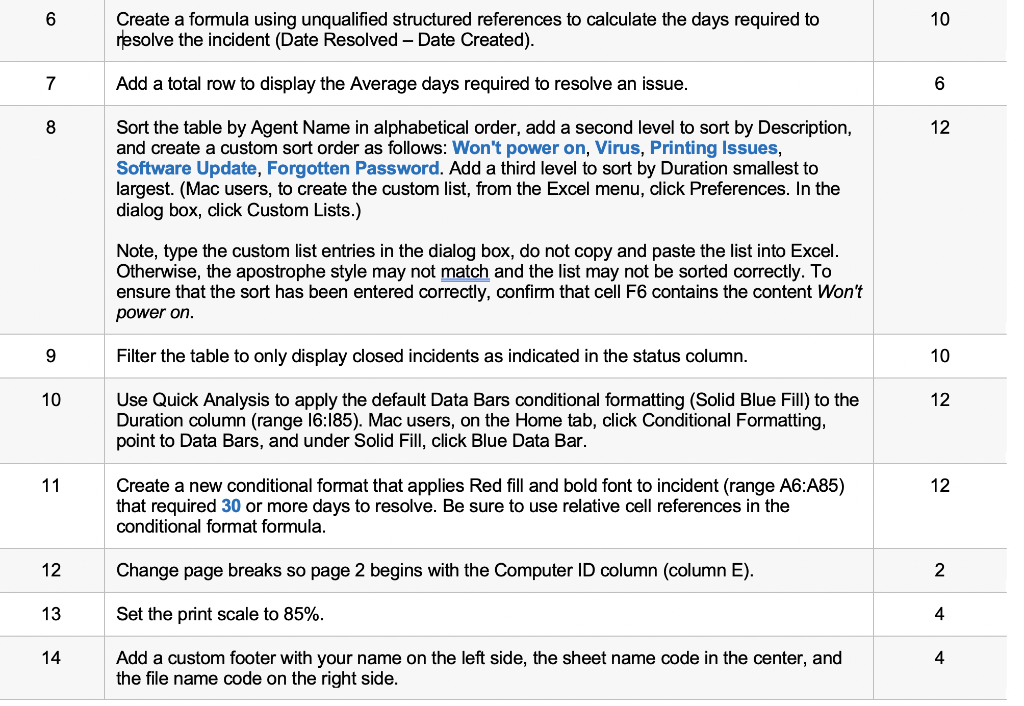



Solved I Need Help With Question 6 And As Many As You Can Chegg Com




Bitmart Lists Truebit Protocol Tru Enjoy 50 Off Trading Fees 5 Days In A Row Bitmart




After Working For 7 Days In A Row Jan 19 12 13 Utc 15


